Ditapis dengan
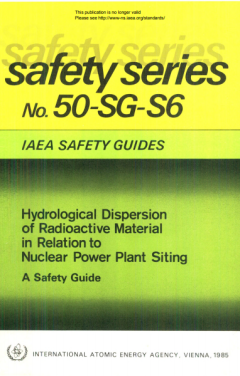
Safety Series No.50-S6-D2 (Rev. 1) SAFETY GUIDES. Fire Protection in Nuclear …
The hydrosphere represents an important pathway by which radioactive materials caft be dispersed from a nuclear power plant into the environment and hence to man. The dispersion in surface water is discussed in this Guide while the question of dispersion in groundwater is presented in the Safety Guide on Nuclear Power Plant Siting: Hydrogeologic Aspects (IAEA Safety Series No.50-SG-S7).
- Edisi
- -
- ISBN/ISSN
- 9 2-0-123285-3
- Deskripsi Fisik
- 132 pages
- Judul Seri
- -
- No. Panggil
- -
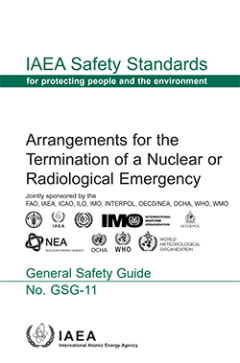
Arrangements for the Termination of a Nuclear or Radiological Emergency - IAE…
This publication provides guidance and recommendations on arrangements to be made at the preparedness stage, as part of overall emergency preparedness, for the termination of a nuclear or radiological emergency and the subsequent transition from the emergency exposure situation to either a planned exposure situation or an existing exposure situation. It elaborates the prerequisites that need to…
- Edisi
- -
- ISBN/ISSN
- 978-92-0-108017-2
- Deskripsi Fisik
- 189 page, 3.64MB
- Judul Seri
- -
- No. Panggil
- -
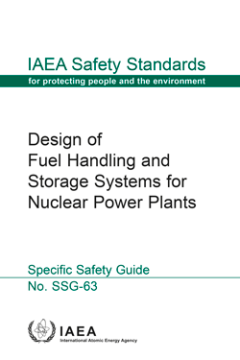
Design of Fuel Handling and Storage Systems for Nuclear Power Plants - IAEA S…
This Safety Guide provides recommendations on how to meet the requirements of IAEA Safety Standards Series No. SSR-2/1 (Rev. 1), Safety of Nuclear Power Plants: Design, in relation to fuel handling and storage systems. The publication addresses the design aspects of handling and storage systems for fuel that remain part of the operational activities of a nuclear reactor. It covers the following…
- Edisi
- -
- ISBN/ISSN
- 978-92-0-108519-1
- Deskripsi Fisik
- 53 pages, 134 MB
- Judul Seri
- -
- No. Panggil
- -
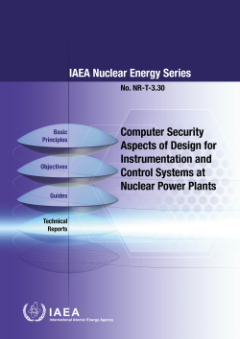
Computer Security Aspects of Design for Instrumentation and Control Systems a…
The transition to digital technology has changed the nature of instrumentation and control (l&C) systems by enabling extensive interconnection of reprogrammable, functionally interdependent I&C systems. This development has made computer security a necessary element for consideration in I&C system design. The benefits and challenges of the various computer security methods and controls with the…
- Edisi
- -
- ISBN/ISSN
- 978-92-0-104919-3
- Deskripsi Fisik
- 57 Pages
- Judul Seri
- -
- No. Panggil
- -
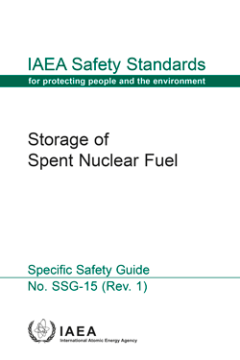
Storage of Spent Nuclear Fuel - IAEA Safety Standards Series No. SSG-15 (Rev. 1)
This publication is a revision by amendment of IAEA Safety Standards Series No. SSG-15 and provides recommendations and guidance on the storage of spent nuclear fuel. It covers all types of storage facility and all types of spent fuel from nuclear power plants and research reactors. It takes into consideration the longer storage periods beyond the original design lifetime of the storage facilit…
- Edisi
- -
- ISBN/ISSN
- 978-92-0-106119-5
- Deskripsi Fisik
- 130 pages, 1.48MB
- Judul Seri
- -
- No. Panggil
- -
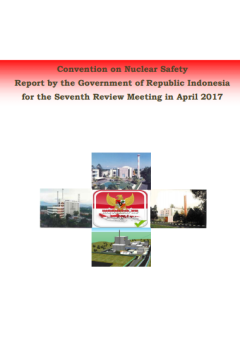
Convention in Nuclear Safety Report by the Goverment of Republic Indonesia fo…
This report is prepared not only to fulfill obligation of Indonesia as the party of this Convention and as the supporter of Vienna Declaration on Nuclear Safety (VDNS). This is also a selfassessment results, and as an embarking country this is a demonstration of commitment to nuclear safety. Through the submission and presentation of this report, Indonesia is open for any recommendation and sug…
- Edisi
- -
- ISBN/ISSN
- -
- Deskripsi Fisik
- 72 Pages
- Judul Seri
- -
- No. Panggil
- -
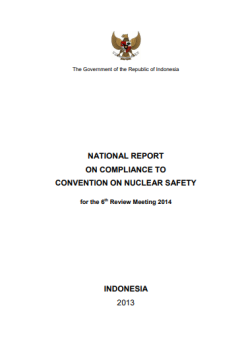
Convention on Nuclear Safety National Report of Republic of Indonesia for the…
The Republic of Indonesia is a contracting party to the Convention on Nuclear Safety since 2004. For the purpose of the Third Review Meeting in 2005, Indonesia has submitted its first national report in 2004. This is the forth report that was prepared and based on the IAEA guideline No. INFCIRC/572/Rev. 3 (2002) on National Reports under the Convention on Nuclear Safety and through a self asses…
- Edisi
- -
- ISBN/ISSN
- -
- Deskripsi Fisik
- 34 pages
- Judul Seri
- -
- No. Panggil
- -
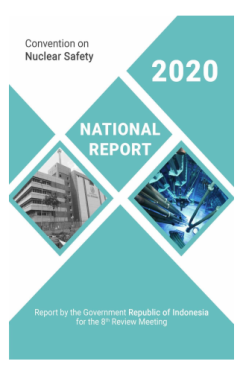
National Report - Convention on Nuclear Safety 2020
This report is prepared not only to fulfil obligation of Indonesia as the party of this Convention and as the supporter of Vienna Declaration on Nuclear Safety (VDNS). This is also a selfassessment result, and as an embarking country this is a demonstration of commitment to nuclear safety. Through the submission and presentation of this report, Indonesia is open for any recommendation and sugge…
- Edisi
- -
- ISBN/ISSN
- -
- Deskripsi Fisik
- 77 pages
- Judul Seri
- -
- No. Panggil
- -
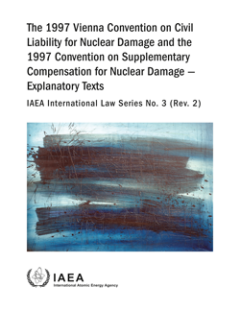
The 1997 Vienna Convention on Civil Liability for Nuclear Damage and the 1997…
This publication reproduces the explanatory texts on the nuclear liability instruments adopted under the IAEA’s auspices in 1997. Finalized by the International Expert Group on Nuclear Liability (INLEX), these texts constitute a comprehensive study and authoritative interpretation of the IAEA’s nuclear liability regime. More particularly, the texts deal with the Protocol to Amend the Vienna…
- Edisi
- -
- ISBN/ISSN
- 978-92-0-106020-4
- Deskripsi Fisik
- 172 Hal
- Judul Seri
- -
- No. Panggil
- -
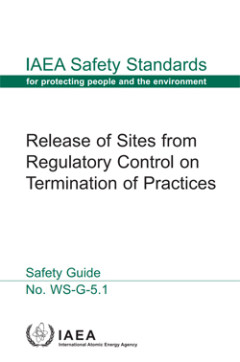
Release of Sites from Regulatory Control on Termination of Practices, Safety …
An increasing number of nuclear facilities are coming to the end of their useful lives and are being, or are going to be, decommissioned with a view to removing the sites from regulatory control. In many cases, decommissioning activities include the decontamination of land, buildings and other structures such as underground pipes and tanks, or ponds, at the site that became contaminated as a re…
- Edisi
- -
- ISBN/ISSN
- 9201016069 / 1020525X
- Deskripsi Fisik
- 37 p. : Illus. ; 24 cm
- Judul Seri
- Safety Standards No. WS-G-5.1
- No. Panggil
- -
 Karya Umum
Karya Umum  Filsafat
Filsafat  Agama
Agama  Ilmu-ilmu Sosial
Ilmu-ilmu Sosial  Bahasa
Bahasa  Ilmu-ilmu Murni
Ilmu-ilmu Murni  Ilmu-ilmu Terapan
Ilmu-ilmu Terapan  Kesenian, Hiburan, dan Olahraga
Kesenian, Hiburan, dan Olahraga  Kesusastraan
Kesusastraan  Geografi dan Sejarah
Geografi dan Sejarah